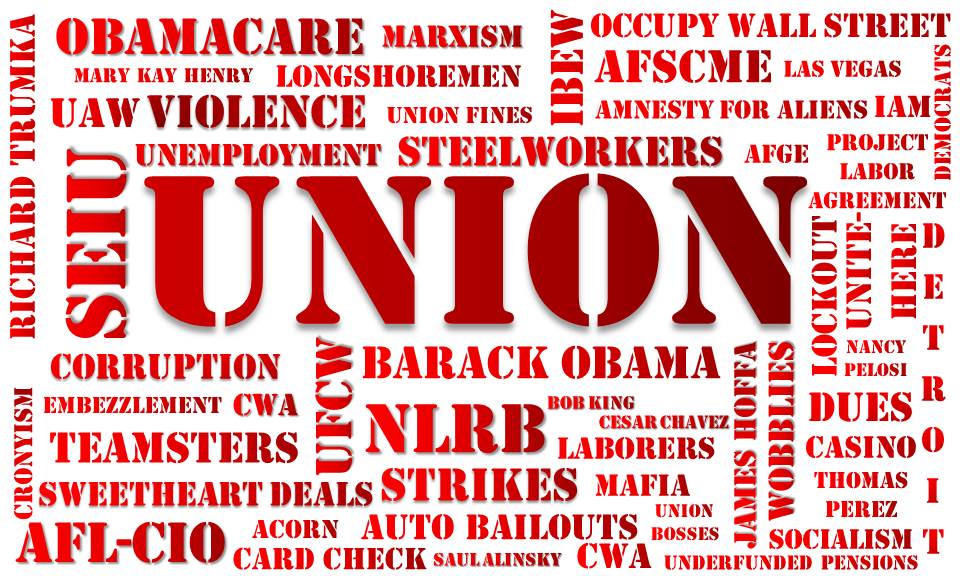New agency director wrote “the bible” on union organizing, believes unions should be permitted to bribe workers for their votes
Union bosses got another ally into a position of power last month with the appointment of union lawyer and labor professor Michael Hayes to become the director a little-known, but powerful Department of Labor sub-agency called the Office of Labor Management Standards (OLMS).
As the new director of the OLMS, Michael Hayes is not just a union attorney and law professor, he is an advocate with extremely pro-union views.
In addition to authoring a number of pro-union articles and essays, Hayes has written what is considered “the bible” for union organizing in the construction industry, The Campaign Guide: Organizing the Construction Industry.
The guide offers a comprehensive and strategic approach to organizing that engages members, unrepresented workers, contractors, and secondaries with escalating actions on multiple fronts. It covers every legal aspect and offers practical tips and information for communicating with workers, staging actions, increasing turnout for events, conducting strategic research, selecting targets and much, much more. [Emphasis added.]
Hayes’ advocacy for unions doesn’t just end with writing a guide for union organizers. In one paper, he actually argued for permitting [construction] unions, during organizing campaigns, to give workers “union benefits” before they vote.
Notwithstanding the fact that workers’ voting for union representation–even in the construction trades–does not bind an employer into paying for union benefits, the permitting of unions (or employers) to bribe workers into voting for (or against) union representation is considered interfering with workers’ ability to make a free and un-coerced decision on union representation.
In his 2003 article, Hayes argued:
Abstract:
Unions exist to provide assistance to employees; this is their reason for being. Yet once a union begins a campaign to represent a group of employees, it is legally barred from extending tangible assistance to the workers. The National Labor Relations Board (“NLRB” or the “Board”) and courts deem a union grant of benefits to employees during or prior to a representation campaign objectionable conduct that requires setting aside the results of the representation election and holding another election.This article’s proposal to open the door to unconditional union benefits during an organizing campaign will likely be controversial. Part of the controversy stems from the fact that the proposal would reverse a legal rule that has been in place for more than thirty years. A greater source of controversy will be that the proposal would allow unions to do something that employers are forbidden to do. Currently, both unions and employers are prohibited from granting employees unconditional benefits during an organizing campaign. Removing that prohibition just for unions would no doubt spur complaints by employers and their representatives, who would argue that the prohibitions on each side are currently equivalent, and it would therefore be unfair and unreasonable to remove the limit for just one side.
This article proposes a policy change that the Board has full authority to carry out. The Board, in fact, created the prohibition on union grants of benefits and it should now revisit this policy. The prohibition is harmful to employees and limits their ability to make a fully informed and well reasoned choice in representation elections. [Emphasis added.]
With Hayes serving as the director of the Office of Labor Management Standards–an agency charged with enforcing the Landrum-Griffin Act (or Labor-Management Reporting and Disclosure Act), which includes investigating union corrupt union bosses, ensuring union democracy for union members, as well as making sure that union finances are transparent for union members–it seems clear that Hayes’ prior advocacy for unions may be in conflict with policing union bosses’ and their activities.
Additionally, as the OLMS is the agency that will be enforcing the Department of Labor’s highly-controversial “persuader” regulations when they are released in November, it appears Hayes’ prior one-sided advocacy bodes ill for the nation’s companies who seek advice regarding their employee and labor relations.
Hat-Tip: DC Employment Law Update.
___________________________
“Truth isn’t mean. It’s truth.”
Andrew Breitbart (1969-2012)





